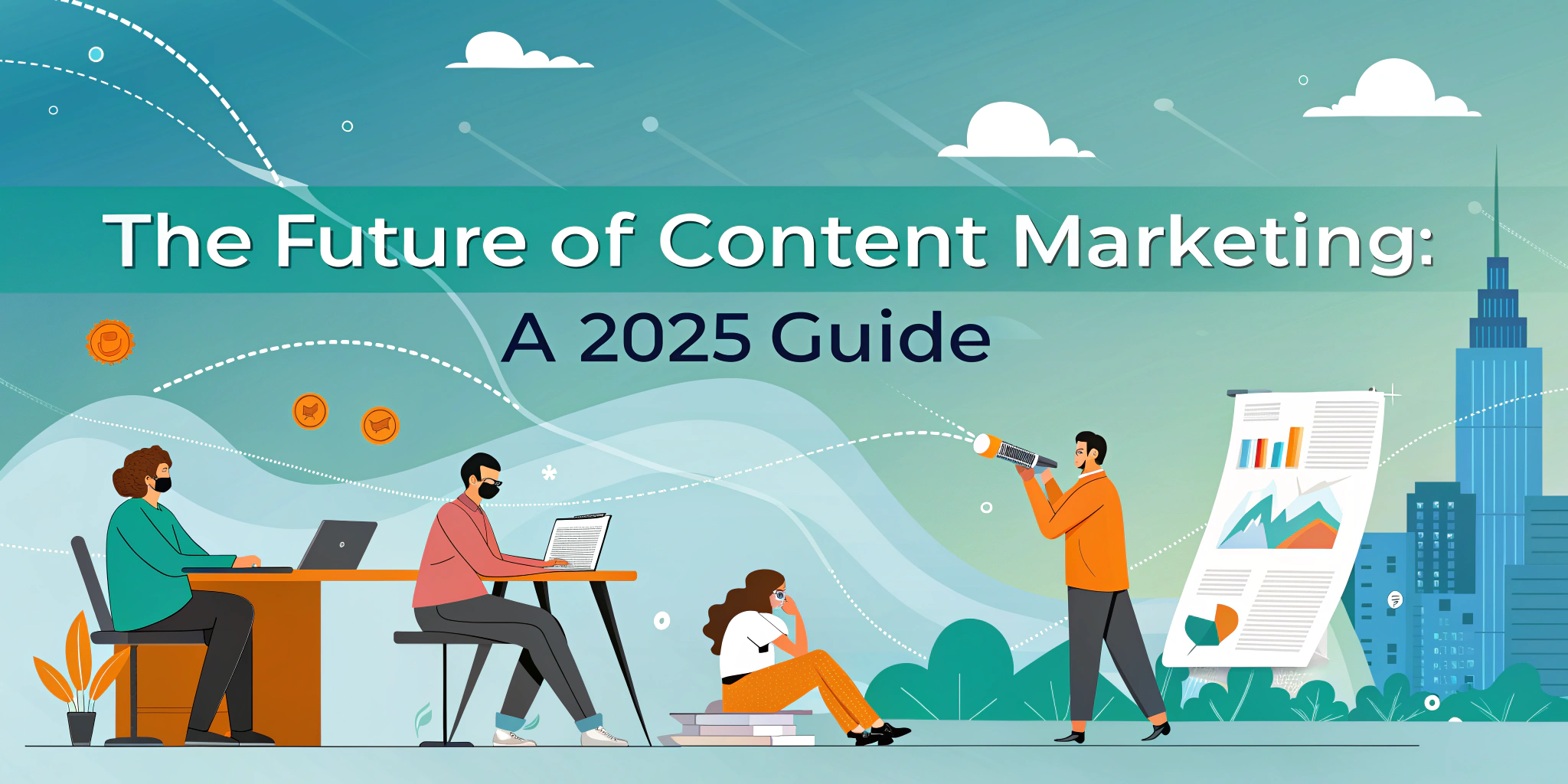In today's digital world, content marketing is essential for businesses of all sizes. However, with technology changing rapidly, companies need to stay updated on the latest trends. As we look toward 2025, the future of content marketing will be shaped by new tools, consumer behaviour, and more advanced technologies. In this blog, we'll walk through the most significant trends and ideas you need to know about to stay ahead in content marketing.
Why Content Marketing is Crucial for Your Business in 2025
Content marketing is all about creating valuable, relevant, and consistent content to attract and engage your target audience. In 2025, it will be even more essential for businesses to create content that resonates with customers. Consumers want more personalized experiences, and they expect brands to deliver content that speaks to their needs.
If you don't keep up with new content marketing trends, you risk falling behind. So, let's dive into the future of content marketing and see what you can expect.
1. The Evolution of Content Marketing
Content marketing has changed a lot over the years. In the past, it was mostly about creating written articles or blog posts. But today, it's much more. Social media, videos, and email marketing have become essential parts of content strategies.
New technology has allowed businesses to better connect with their customers. Artificial Intelligence (AI), machine learning, and automation are changing how content is created and distributed. These advancements will only continue to grow in 2025.
2. How AI and Automation Will Shape Content Marketing
AI is becoming a big part of content marketing. In 2025, businesses will trust AI-powered tools to create, manage, and distribute content. AI can help with things like:
- Content creation: AI tools can write articles, generate blog ideas, or even create social media posts.
- Content curation: AI can analyze data and find the best content to share with your audience.
- Personalization: AI helps provide the right content to the right person based on their behaviour and interests.
While AI and automation will make content creation faster, it's essential to maintain a human touch. Content should still feel real and relatable to your audience.
3. Hyper-Personalization: Creating Content Just for You
In 2025, hyper-personalized content will be more critical than ever. Hyper-personalization means creating content that speaks directly to an individual's needs, preferences, and behaviour.
Thanks to AI and data analysis, businesses will be able to create content that is unique to each person. For example, you might receive an email with product recommendations based on your past purchases or see ads that are tailored to your interests.
This personalized approach helps build stronger relationships with customers. It increases the chances of them taking action—whether it's buying a product, signing up for a newsletter, or sharing your content.
4. Video and Interactive Content: The Future of Engagement
Video content continues to grow, and by 2025, it will be even more dominant. Short-form videos, live streaming, and even webinars will be key ways to connect with your audience. Platforms like TikTok, Instagram, and YouTube are becoming essential for brands to reach their customers.
But video isn't the only format to watch for. Interactive content is also on the rise. This includes things like examinations, polls, and interactive infographics that encourage users to engage and participate. These types of content not only boost engagement but also help you learn more about your audience.
In the future, Virtual Reality (VR) and Augmented Reality (AR) will also become more common in content marketing. Brands can use VR/AR to create immersive experiences, allowing customers to interact with products or services in a whole new way.
5. Voice Search: The Rise of Voice-Based Content
Voice search is growing rapidly, thanks to smart devices like Amazon Alexa, Google Assistant, and Apple Siri. In 2025, more people will use voice search for content, ask questions, and find products.
This shift means businesses need to optimize their content for voice search. Unlike traditional text searches, voice searches are usually longer and more conversational. For example, someone might ask, "What's the best pizza place near me?" rather than just typing "best pizza."
<!--🚀 New Batch Starting Soon!
Don't miss your chance to enroll now.
To stay ahead of this trend, businesses will need to use natural language in their content and make sure it's easy for voice search engines to find.
6. User-Generated Content (UGC): Building Trust with Your Audience
User-generated content (UGC) will continue to grow in importance. UGC is any content that's created by your customers or fans, like reviews, social media posts, or photos.
People trust other consumers more than traditional advertisements. UGC helps build genuineness and trust with your audience. By sharing your customers' experiences, you can show that real people love your brand, which can inspire others to check it out.
In 2025, businesses will encourage UGC more and integrate it into their content strategies to increase brand engagement and loyalty.
7. Purpose-Driven Content: Connecting with Your Audience's Values
Consumers today watch more about what brands stand for. Purpose-driven content focuses on a company's values, such as sustainability, social justice, and community impact.
In 2025, more businesses will create content that aligns with their brand's mission and values. This helps connect with socially aware customers who want to support brands that share their beliefs.
For example, if your business focuses on eco-friendly products, you might create content around the importance of sustainability. By showing that your brand cares about issues that are important to your audience, you can build stronger connections and loyalty.
8. Providing a Seamless Content Experience
As more people use mobile devices, voice assistants, and social media, user experience (UX) will be more critical than ever. Customers expect a smooth, easy experience when interacting with your content.
Businesses will need to optimize their content for all devices—mobile, desktop, and voice search—and ensure that it's easy to navigate. Content should be accessible and enjoyable to read on any platform, whether it's on a website, app, or social media channel.
9. Data-Driven Content: Understanding What Works
In 2025, data will continue to drive content decisions. By analyzing data, businesses can understand what type of content their audience likes, what times they engage, and what drives conversions.
Tools like Google Analytics, social media insights, and AI-powered platforms will allow businesses to track and measure the success of their content. By understanding what works and what doesn't, companies can create content that delivers better results.
10. Ethical Content Marketing: Trust and Transparency
As content marketing grows, so does the need for ethical practices. Consumers are becoming more concerned about their privacy and how brands use their data. By 2025, businesses will need to prioritize data protection, transparency, and honesty in all of their content marketing efforts.
This includes being clear about sponsored content and influencer marketing partnerships. Ethical content marketing isn't just about following the law; it's about building trust with your audience and creating long-term relationships.
Conclusion: Get Ready for the Future of Content Marketing
The future of content marketing is bright, with plenty of exciting changes coming in 2025. From AI-powered tools to personalized experiences and video content, businesses will need to adapt quickly to stay competitive.
By focusing on the latest trends, such as hyper-personalization, voice search, and user-generated content, you can create a content strategy that connects with your audience and drives actual results. It's time to start preparing for the future!



